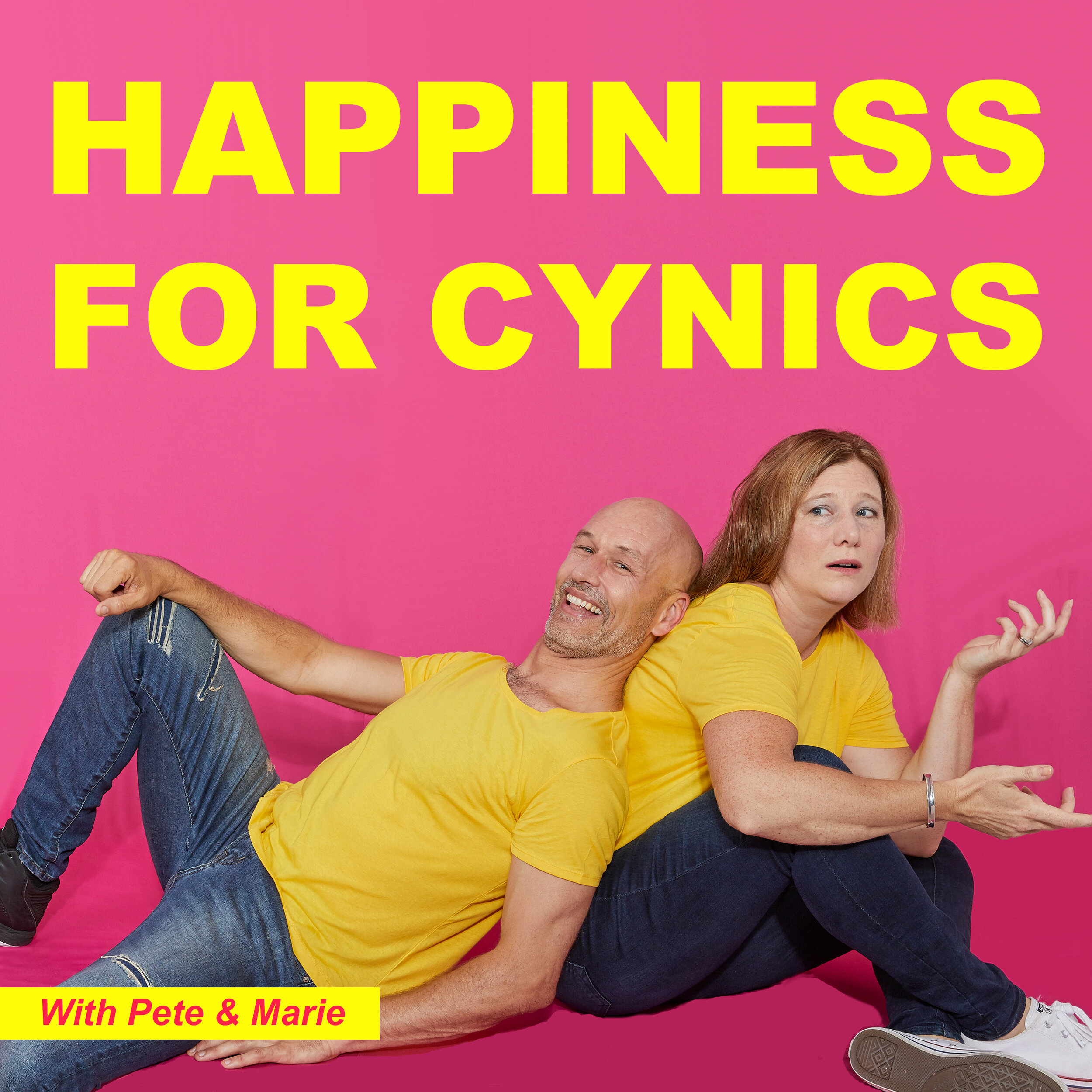Since beginning my weekly chats with Marie Skelton on my HAPPINESS FOR CYNICS podcast, I’ve come to realise that a lot of truths that I have held about health, life, focus and philosophy have all been adopted beliefs. I’ve just gone in willy nilly and for some reason adopted these truths as my mantras and have stuck to them wholeheartedly and with determination and vigour, upholding them to be the doctrines which I live by. The interesting part of this process, is debating these beliefs with Marie on a regular basis has forced me to question, look at my truths more objectively, defend them and actually go and do the research as to WHY I have adopted them.
It’s been oddly compelling and an interesting exploration into the science of what I have adopted as my beliefs. The reassuring thing is that more often than not, I’ve proven to myself that I was actually on the right! path. That the things that I knew to be true, are in fact good for me, beneficial and as an added bonus, good for me in ways I didn’t realise. We do have a tendency to turn a blind eye to things that we know are good for us or maybe not give them the dues that they deserve.
Dogmatic belief systems in any form are dangerous. Upholding a long held truth can be as much a blind gesture of faith as is believing politicians are still the guardians of our moral compass. Perhaps the more ingrained point is that any belief or opinion these days can be backed up by some sort of source on the internet who may have random scientific facts about a study that was conducted 20 years ago, or was paid for by a company that had vested interests in the result or marketing potential of an outcome. As my co-host Marie always points out - what’s the source? The danger of dogmatic belief is that we tend to close the door to other possibilities. The defence of our opinion sometimes becomes the sole focus of our need to ‘win the argument’ and we become rooted in our belief which leads to a resistance to change.
In a change storm such as what we are experiencing currently with global pandemics, changing political environments and ever increasing technological advancement that impacts our daily lives and interactions (ie the way we behave), you can sense that being resistant to change may result in not having choice or control over our own personal directions. The world is not full of absolutes and the resistance to living with flexibility or adaptability means that we could be missing out on the good stuff - the new ideas, the differing points of view, the new concepts that can in fact make our lives easier.
“...groups are the driving evolutionary force of the human species... not just any groups but those that achieve ‘eusocial’ groups. They live in multigenerational communities, have a reproductive division of labor and cooperatively care for their young and behave altruistically.”
Staying open and empathetic to others is vital if we want to glean the best from others. Humans function best when we are social. We don’t advance when we isolate. Our great evolutionary advancement and proliferation as a species has come from our ability to work together in groups - essentially. (some would argue we also seek to persecute each other but thats actually part of my point) In order to advance and learn from others, we need to maintain an open approach and remain receptive to other opinions, ideas and perspectives. We glean the best from both points of view if we can maintain an empathetic response to those that challenge our own beliefs.
Buddhists believe that as humans we are fundamentally loving creatures. Now that in and of itself is a big challenge to many. This fundamental belief that we are loving. It’s a doctrine that is hard to defend in the face of such social unrest and turmoil such as that happening in western culture right now. And yet this is the perfect example of how to challenge ourselves. ‘Coveting empathy is to connect with your fellow sentient being’ according to buddhist doctrine. So how do I do this when I see political leaders creating turmoil and failing to understand human experience? Somehow one has to put themselves in the empathetic position and try to find the connection with someone that is so diametrically opposed to a personal perspective. It’s hard to do that with a narcissistic zealot but connect we must. In finding this connection, we automatically access our receptive state and can therefore begin to unpack and assess a perspective or argument and try to glean the aspects that we can apply to our own experience.
Being empathetic in a negotiation requires being able to understand the emotions, thoughts and attitudes of the other person. Putting yourself in their shoes and understanding the point of view from their experience or perspective. The great thing is though, that in keeping your mind flexible enough to be empathetic and see the other’s truth, you may just be expanding your own experience and learning without having to suffer the consequences of going through the actions. If we apply this to learning and to developing our long held belief systems we can expand our knowledge base and possibly find alternative ways or ideas to approach life.
Discounting or dismissing an opinion outright puts you in a defensive position and this is not a great platform for learning. If something challenges a fundamental belief of yours then it is difficult to remain open, especially in the face of hostile intent. I am thinking of the great challenges of our civilisation where despots or tyrants have held sway over people in wars, invasions or genocide. But in challenging our own beliefs and opinions, if we instantly go to the defensive we don’t necessarily get to learn the benefits of the discussion.
In truly listening to others and giving space to the opposing opinion, we can dissect and dismantle the opinion into its various parts and examine them fundamentally. In doing so, we may find one or two aspects that actually do hold a grain of truth or gift us a pearl of wisdom that brings us to other conclusions or thoughts against which we can measure our own long held beliefs.
SO can we be our own devils advocate? Can we look at our own perspectives and beliefs and dissect them honestly so as to better develop and advance our own position and understanding? It’s an exercise that requires investment and is not always easy. In my own way, having my friend embattle with challenges and asking me to prove my point with science and quotes and statistics has brought me to a great position of ‘informed opinion’ and a lovely resilience that maybe I am on the right path. It also has perhaps made me more keen to further investigate, research and develop my little opinions of the world and perhaps even opened me up further to being convinced of other perspectives on life - even when I am deeply rooted in my own beliefs.
Restriction in any form (including in how you think) is ultimately only serving to hold you back from what you really want to accomplish - Kaila Proulx



